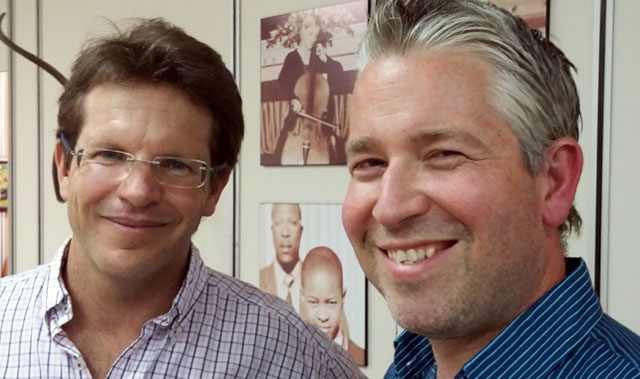
The turnover of the broader social sector in South Africa is roughly same as that of the country’s mining industry and a new start-up, Forgood, hopes to use technology to better direct the flow of monetary and other support to the thousands of nongovernmental organisations and charities that really need it.
The for-profit Forgood is the brainchild of Andy Hadfield, the technology entrepreneur behind the now-defunct start-up Real Time Wine, and Garth Japhet, the medical doctor who started the NGO and television series Soul City in the 1990s and who runs Heartlines, the the organisation behind values-based films such as Nothing for Mahala and Hopeville.
The pair hope that their venture will help get support to the thousands of NGOs in South Africa that are doing “really good work”, but which many people aren’t aware even exist.
“Just like Airbnb created capacity in accommodation, the idea with Forgood is asking, what if you could create space and efficiencies in the nonprofit space?” says Hadfield. “Nonprofits tend to solve little problems in niche areas, but no one is looking at this from a top-down approach.”
He explains that the website allows people to respond to the needs or campaigns of approved causes. More importantly, perhaps, people can create a personalised offer of anything, and Forgood will then match offer to the right causes. There’s also a tool that allows businesses to review the impact that their giving is having on communities.
“We are a technology facilitator and a platform player,” says Hadfield. Forgood is built on Microsoft’s Azure cloud computing platform.
“We are trying to fill the gap between excess capacity and the organisations that can use it,” adds Japhet. “We are often overwhelmed by that gap. There are people with spare capacity— retired people who don’t know how to get involved, or people who are sitting with, say, an old washing machine and it’s too much schlep to give it to a good cause.”
Forgood is focusing its efforts mainly on business, at least to start, as Hadfield believes that’s necessary to build scale. Businesses are charged a licence fee to use the platform.
There is a growing trend among big companies to allow their employees to volunteer their time for good causes, he says. Indeed, many employees are incentivised by their companies to volunteer least once a year to helping such causes, says Hadfield.
“It’s good business, not just a nice, feel-good decision to empower employees to get engaged in communities. It increases productivity and increases loyalty to the organisation,” adds Japhet.
In the short term, Forgood wants to connect 100 000 people to causes.
“Essentially, we want to build the digital ‘glue’ underneath the nonprofit sector in Africa — it’s a critical industry that is often under-supported and under-appreciated. A platform approach can provide efficiency and scale and could be transformative.”
But why launch as a for-profit in a nonprofit sector?
“We’re trying something different,” says Hadfield. “The temptation might be to work inside the nonprofit sector as a nonprofit ourselves, but we’d like to bring a bit of start-up hustle, automation and urgency to the space… We’re a company that wants to make returns for our investors, but we’ll do that while we’re making the world a better place.” — (c) 2015 NewsCentral Media




